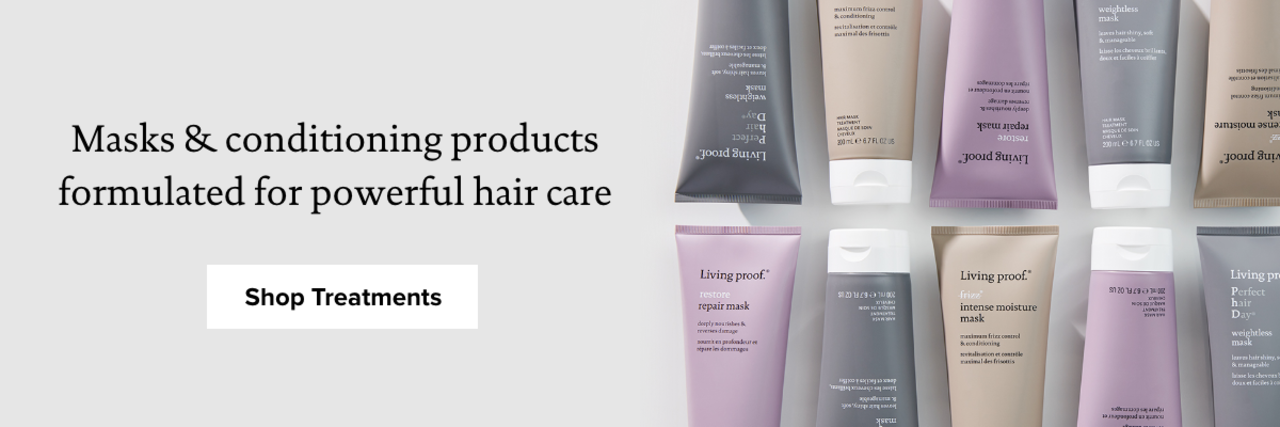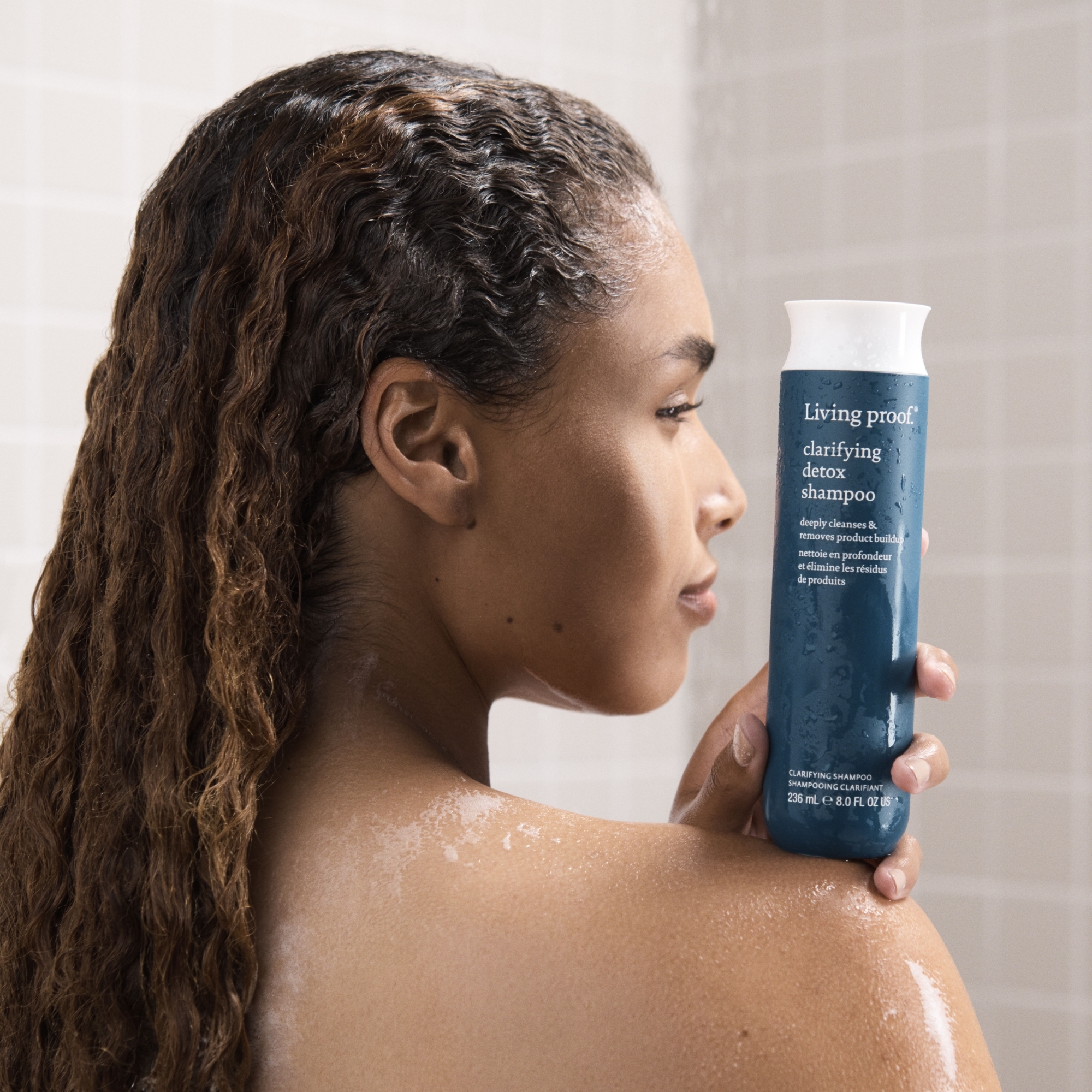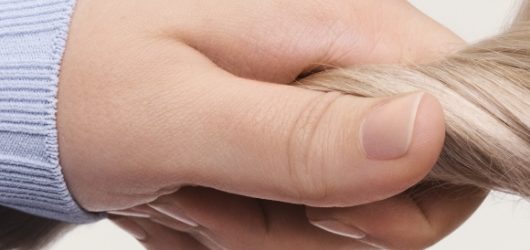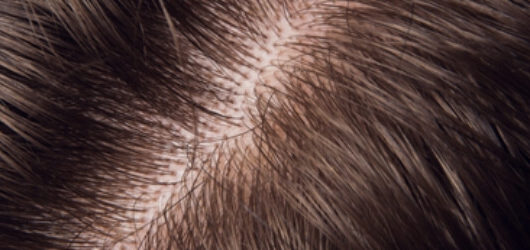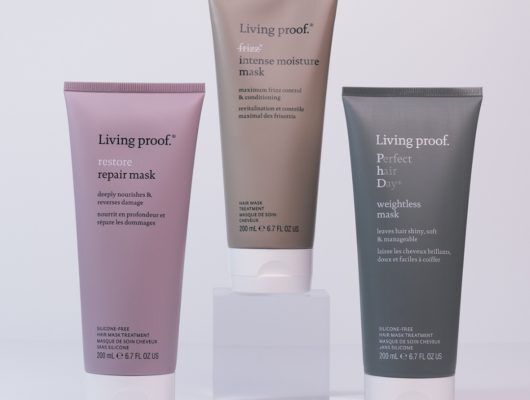
How To Take Care of Your Hair in the Winter
How To Take Care of Your Hair in the Winter
Whether it’s in the form of snow, sleet, or chilling winds—the winter air wreaks all kinds of havoc on our heads by drying out our hair, causing brittleness, frizz, and even hair breakage.1With our strands less able to absorb moisture from the air around us, static electricity is likely to become a familiar foe, too.
The key to fighting these hair battles this winter? Protecting your strands in their fragile state and adding moisture to bolster their strength. We’ve rounded up our top tips for how to take care of hair in winter. Whether you’re preparing for a ski trip or protecting your strands from your commute to work, be sure to read our handy guide to keeping your hair healthy first.
Winter haircare: Our Top Tips
Sprinkles of snow and plunging temps may feel festive and fun initially, but your hair simply doesn’t appreciate harsh winter weather. In fact, the cold, dry air and constant static from your cozy scarves and hats can lead to bad hair season issues like:
- Breakage
- Split ends
- Dullness
- Frizzy hair
- Dry scalp
But ‘tis the season to keep your hair looking shiny and strong. Keep dryness, dullness, and other companions of the cold at bay with our four simple winter haircare tips.
#1 Plan Your Headwear Wisely
When cold winter breezes roll around, so do your winter closet essentials. While hats and scarves keep us warm, they’re not particularly helpful for your hair.
Your hair may seem warm and protected under your favorite beanie, but the reality is that every time you put it on or take it off, your hair is getting smashed and pulled. Not only can this lead to flat “hat hair” at the moment, but this movement can cause friction that leads to breakage and split ends.
Hats can also disrupt the proper disruption of oils, which may lead to buildup on the scalp.
You can mitigate the damage of hat hair by planning ahead with the correct styling solution. For example, if you know you’re going to wear your hair down, try a minimal headband to keep your ears warm. If you’re wearing a trapper hat, weave those strands into a neat braid to protect them. You can also keep static away by using a silk pillowcase when you sleep.
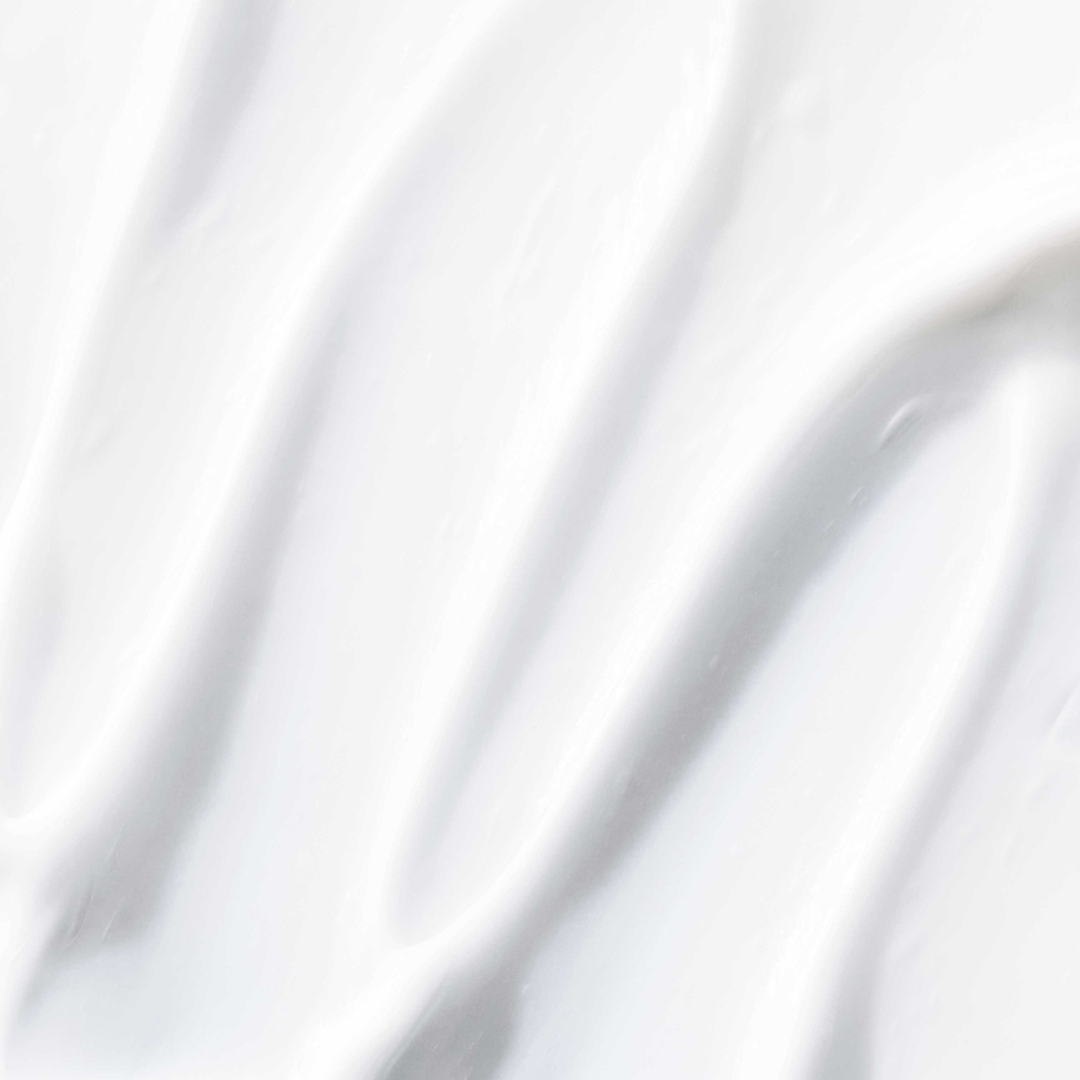
#2 Don’t Go Outside with Wet Hair
There’s a reason you shouldn’t step outside with a wet head in the winter months, and it doesn’t always have to do with catching a cold. In reality, water is heavy, and that added weight can add up to 30% of your hair length post-shower. Damage can happen when your hair stretches beyond this threshold, like matting, gumminess, and breakage. Plus, cold water can stiffen hair strands and lead to potential hair breakage.
Here are a few ways to protect your hair from the cold:
- Wash hair with hydrating, detangling products
- Gently wrap your hair with a towel post-shower
- Build extra time for air drying into your routine
Planning ahead to make sure you’re strictly indoors after washing up isn’t easy, but it’s well worth the effort in the colder months.
#3 Be Smart When Styling with Heat
There are some haircare tips that would probably serve you all year round, but especially so in winter. This is one of them. While a hair dryer is a time-saver, the truth is that frequent use can cause long-lasting damage, such as:
- Roughness
- Dryness
- Loss of hair color
The effects are particularly exacerbated in the winter when a lack of moisture in the air is already tough on your tresses. But as we’ve already established, you also don’t want to go out with wet hair, and you don’t always have time to air dry. So, what can you do? Follow these tips to keep your tresses healthy when using heating tools:
- Use a detangler before any blowouts to ensure you aren’t tugging at knots in your vulnerable locks as you style.
- When blow drying or heat styling, use a color-safe heat protectant spray to shield your hair from the damaging effects of heat.
- Use the cold air setting as often as possible to limit moisture-zapping blasts of heat.
A hair strengthener can help protect your hair during the winter, especially when using heat styling tools.
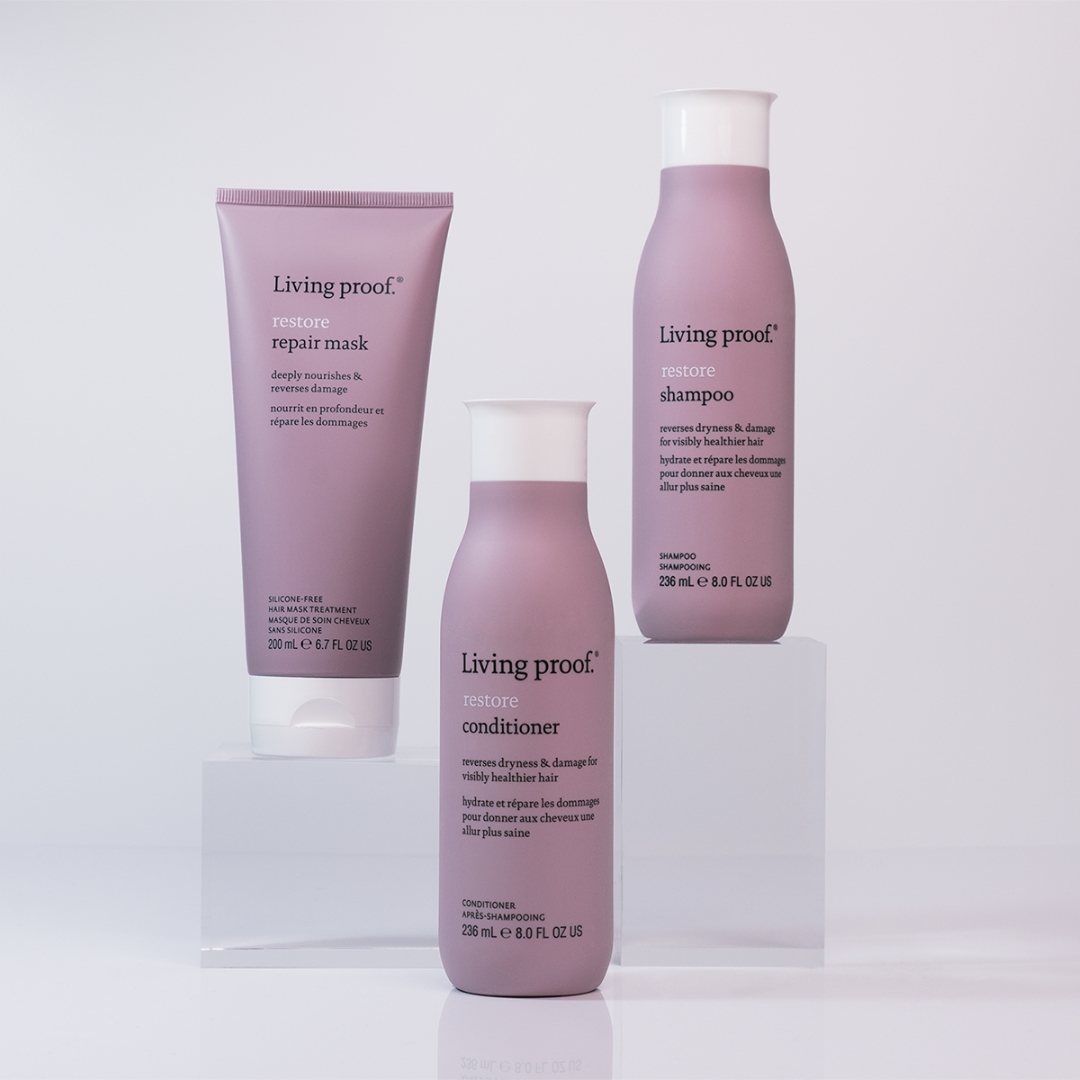
#4 Choose Conditioners that Last
You probably already condition your hair during each shower. But with extra dryness in winter, you want to double up on the conditioning efforts to ensure you’re giving your hair the moisture the chilly air can’t provide.
To that end, there are two different conditioning treatments you may want to add at this time of year:
- Hair masks – Nourish and hydrate your hair with a deep conditioning hair mask chock full of nutrient-dense ingredients and shine-promoting properties. Hair masks deliver a concentrated dose of hydration to help revive dull, dry hair. Apply a hair mask every 1-2 weeks to stock up on strand-fortifying proteins, and silky-smooth hydration.
- Leave-in conditioner – Leave-in conditioner treatments are just what they sound like—they’re conditioners you don’t have to wash out, but that instead come in lightweight formulas that can provide all-day nourishment to your strands. Leave-in conditioners can help restore damaged cuticles, smoothen your strands, and protect against frizz (as well as that old winter foe, static electricity).
When learning how to fix damaged hair in the winter, these products are a great place to start. By adding more moisture to your hair, these products can ultimately reduce friction and help lock in hydration to prevent breakage and keep your hair looking vibrant and healthy. If you’re looking for other solutions, consider adding different types of hair oil to your winter haircare routine.
Fight the Cold with Living Proof
Fearing the cold weather? There’s no need. With our winter haircare tips and help from our innovative, science-backed products, you can step outside on bright cold days, confident that you have healthy hair.
At Living Proof, we’re ready to help you face your haircare foes, supporting your routine with our real-world results. Browse our hair products online or take our hair quiz to learn which products are best for your strands this winter.
- Cleveland Clinic. How to Keep Your Hair Healthy This Winter. https://health.clevelandclinic.org/your-best-strategies-for-beautiful-hair-in-the-winter/
- International Journal of Trichology. Hair Cosmetics: An Overview. https://www.ncbi.nlm.nih.gov/pmc/articles/PMC4387693/
- Annals of Dermatology. Hair Shaft Damage from Heat and Drying Time of Hair Dryer. https://www.ncbi.nlm.nih.gov/pmc/articles/PMC3229938/
- USA Today. Are hair masks really worth it? We asked experts what you need to know. https://www.usatoday.com/story/life/health-wellness/2022/03/18/hair-masks-worth-hydration-repair-experts-share-advice/7060867001/
